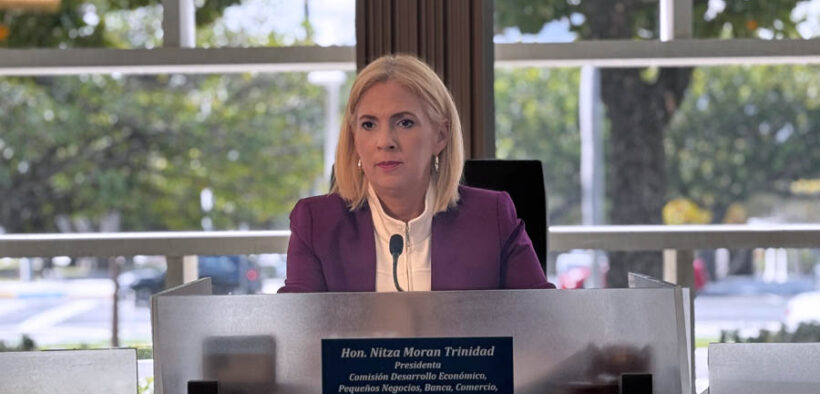Puerto Rico revisits short-term rental regulation with new Senate bill

The bill would create a municipal registry and unified licensing framework in Puerto Rico.
Efforts to regulate short-term rentals (STRs) in Puerto Rico continue with the first public hearing for the latest bill to tackle a complex issue that affects multiple business sectors as well as the public.
Senate Bill 238 aims to amend the Room Occupancy Tax Act (Act 272-2003) to establish a municipal registry and create a uniform framework for STR licenses.
The bill’s author, Sen. Nitza Morán-Trinidad, who chairs the Senate Committee on Economic Development, Small Business, Banking, Commerce, Insurance and Cooperativism, held the hearing on April 9.
“The sharing economy is here to stay,” said the senator from the San Juan district. “But the time has also come to make sure that this business model grows in an orderly manner, respecting safety, the peace of our communities and fair economic development.”
During the hearing, the senator received opinions from representatives of the Municipality of San Juan, the Puerto Rico Tourism Co., Airbnb, the Association of Condominium Owners, the Puerto Rico Realtors Association and the Puerto Rico Builders Association, according to Morán-Trinida’s office.
Local STRs offer recommendations
Viva Puerto Rico Short-Term Rental Alliance, the only local organization representing STR hosts and operators on the island, supports a uniform regulatory framework rather than delegating enforcement to all 78 municipalities, co-President René Acosta told News is my Business.
“A patchwork of incompatible registries, licenses and processes creates inefficiency, lack of transparency and inequality in law enforcement,” Acosta said.
In his testimony, Acosta emphasized the need to reduce red tape and avoid imposing excessive burdens on an industry “that has benefited thousands of Puerto Rican families, allowing them to generate income, preserve properties and reactivate communities.”
He argued that compliance with new regulations should be encouraged through effective mechanisms that distinguish between those who comply and those who do not. “Lack of compliance is not due to a lack of will, but rather to institutions lacking the technical and operational capacity to properly oversee,” he said.
As the representative of Viva PR, Acosta also raised the following concerns and recommendations:
- Municipalities lack the resources to enforce regulations effectively. Inconsistent implementation would allow illegal operations to continue, harming responsible hosts.
- Restricting activity to primary residences excludes hosts with multiple properties, even if they manage them responsibly, reducing economic opportunities for legitimate owners.
- Requiring hosts to store and share guests’ personal data creates legal and privacy risks.
- Flat fees of $100 or $500 do not reflect differences in location or revenue volume and disproportionately affect low-income hosts or those in areas with low tourist demand. Viva PR proposed a tiered or single low-cost fee without expiration.
- If booking platforms fail to update on time, hosts may be penalized unfairly for circumstances beyond their control.
- SB 238 mentions exceptions without detailing criteria or processes, which can lead to inconsistencies, ambiguities and potential for favoritism.
- There is a lack of clarity in appeals processes because the bill does not establish a clear mechanism for challenging sanctions.
- The bill’s approach is limited to sanctions without offering incentives for compliance, making the regulations prone to arbitrary enforcement, discouraging collaboration and fostering distrust in the system.
Senate Bill 238, “represents a unique opportunity to establish a modern, realistic and efficient public policy,” Acosta said. “To achieve this, it is essential to listen to the voices of those of us who live this industry every day. Regulation must be a tool for order and development — not exclusion or punishment.”
A renewed push
Attempts to regulate STRs in Puerto Rico are not new. Last summer, the Senate rejected House Bill 1557, which sought to address complaints from communities, organizations and individuals that STRs were harming their health, safety and well-being.
A critical point of debate during the hearings for HB 1557 was the lack of a clear STR definition, with some tourism and community leaders contending that STRs should be classified as commercial activity and should be defined as such in the bill.
Also discussed at the time was the establishment of a registration and permitting process, a room tax, the authority of municipalities to oversee the sector, and measures related to safety, zoning, insurance, jobs and neighborhood impacts.
A booming global market
The global STR market reached $132.41 billion in 2024 and is expected to reach $456.61 billion by 2035, with a compound annual growth rate (CAGR) of 11.9% between 2025 and 2035, Vantage Market Research recently reported. North America accounted for more than 30% of the revenue in 2024 and should grow at a CAGR of 10.7% during the same period.
According to Statista, the global vacation rentals market is projected to generate $105.71 billion in revenue in 2025 and grow at a CAGR of 4.4% from 2025 to 2029, reaching an estimated market volume of $125.58 billion by 2029. The U.S. is expected to lead with $21 billion in revenue this year, the highest among all countries.
Statista projects the number of users in the vacation rental market will reach 1.07 billion by 2029, with the user penetration rate increasing from 11.6% in 2025 to 13.3% by 2029. By that year, online sales are expected to account for 78% of total revenue in the sector.
The vacation rentals market comprises bookings for private accommodations such as holiday homes, houses, and short-term rentals of private rooms or apartments via platforms such as Airbnb, HomeAway, travel agencies or by telephone.












